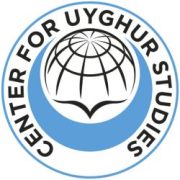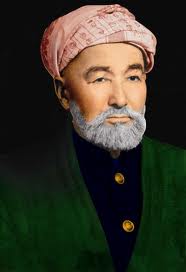05
Born on March 21, 1885, in the lush terrains of Balasagun, Elihan Tore hailed from a family engaged in agriculture. His father, Shakir Han Tore, was a man of enlightenment in his era, and he was blessed with four children, Eli being the second among them. Shakir Han Tore was a man of noble lineage, committed to the education of his children. Thus, he sent Elihan Tore, alongside his elder son Alim Han Tore, to pursue their studies in the holy land of the Hijaz.
Upon Elihan Tore’s graduation from secondary school, he returned to his homeland and continued his educational journey in the schools of Bukhara. It was during this time that he developed a fervent passion for medicine, becoming an ardent disciple of the learned physicians of his era. He meticulously studied the works of renowned medical scholars such as Abu Ali ibn Sina and others, ultimately becoming an educator and a celebrated physician in the field of medicine.
As he dedicated himself to his studies, the Central Asian territories fell under the imperial rule of the Tsarist Empire, and the populace continued their relentless resistance against the Tsarist regime. In the year 1916, the Kyrgyz people and various ethnic groups in the Tugmak region rose in rebellion against the Tsarist Russian government, and Elihan Tore fervently participated in this uprising. Regrettably, the rebellion was thwarted by the overwhelming power of the Tsarist forces, leading the rebels to disperse in all directions. Elihan sought refuge in Kashgar, far to the east, only to return to his homeland in the year 1918.
By the close of 1920, Elihan Tore harbored the desire to embark on a pilgrimage to the holy land of the Hijaz. However, during this time, due to the prevailing circumstances under the Soviet Union, it was exceedingly difficult to journey to Mecca for the sacred pilgrimage. Instead, he arrived in the city of Ghulja with the intention of traveling to East Turkistan. Yet, due to the tumultuous conditions of that period, he refrained from continuing his journey and settled in the city, dedicating himself to his medical profession. Swiftly, he gained popularity and respect in Ghulja, earning the title of a distinguished scholar and a healer among the people. In due course, the neighborhood came to be known as “Tore Neighborhood” in his honor.
In the year 1937, the blood-stained sword of the executioner, Sheng Xi Cai, descended upon the land, leading to the arrest of a multitude of scholars and intellectuals, including Elihan Tore. He was apprehended and his possessions were seized.
It was not until the year 1941 that he regained his freedom and returned to Ghulja from Urumchi. Upon his return to Ghulja, he resumed his dedicated work within the community. Witnessing the growing sentiments of the people against the oppression of the Kuomintang regime, he engaged in both public and clandestine advocacy within mosques, religious schools, and public gatherings against the autocratic policies of the Kuomintang government. The thirst for liberation among the people led them to flock to the mosques where he delivered his Friday sermons. Thus, the “Liberation Society” clandestinely emerged in Ghulja in 1944, with Elihan Tore assuming the mantle of its leadership.
It is noteworthy to mention that in the early months of 1944, Youssef, the former Soviet Consul General of Urumchi, arrived in Ghulja and consulted with local figures like Saleh Han Bai of Ghulja regarding the establishment of an organization. They collectively decided to name the organization “Liberation Society.” Since its inception, the Soviet hospital director in Ghulja, Hakim Jabbar Wujiyarullah Bekov, assumed responsibility for the organization’s activities.
Prominent thinkers, intellectuals, and distinguished personalities, representing diverse races and communities, joined the ranks of this society. Notable figures such as Abdrehim Jan Sabir, Qasim Jan Qamari, Abdukarim Abbaov, Salih Janbai Babajan, Zia al-Noun Tayyib, Muhammad Jan Makhdum, Abdul Rauf Makhdum, Jani Yoldashov, Muktar Khaliha, Nur al-Din Bek, Omar Jan, and Muhyiddin Ahmed were among those who actively participated.
Subsequently, among the prominent members of the society, Elihan Tore assumed the position of the head of the East Turkistan government, while Abdul Rauf Makhdum became the Secretary-General. Abdul Karim Abbas Ov became the head of the propaganda department, and Qasim Jan Qamari was appointed as the head of personnel. Habib Youngji became the Minister of Education (later succeeded by Saif al-Din Azizi), Saleh Janbai became the Minister of Agriculture, Muhammad Jan Makhdum took the role of Chief Justice, and Zia al-Noun Tayyib served as the Deputy Commander of the National Army.
Elihan Tore became President of the East Turkistan government, which was established on November 12, 1944. In the early months of 1945, he was bestowed with the rank of Marshal. When the treaty was signed between the East Turkistan government and the Kuomintang, forming a coalition government, Elihan Tore joined as a member of the government. However, after a brief tenure, in July 1946, on the thirteenth day of the month, he was surreptitiously abducted from Ghulja to the Soviet Union.
Following his mysterious disappearance, rumors circulated among the people. Some claimed he had gone to Qorghas (the border region of East Turkistan with the Soviet Union) for a meeting, while others speculated he had gone elsewhere. His last guards, Aladdin Amir and Sonur Munir, stated, “On the thirteenth of June, we accompanied Elihan Tore to Office Number 2 (the Special Assignments Bureau of the Soviet government). After a while, a man emerged, saying, ‘The President orders your return.’ We complied, and from then on, we neither saw him nor knew where he went.”
I believe Colonel Ivan Ivanov, a resident Soviet spy in the bureau established by the former Soviet Union in Ghulja on July 13, 1946, came to Aqsu from Osh in the early 1930s. There, he learned the Quran, settled, married, and had children. Colonel Ali Hamidov, who arrived in Ghulja during the “Three Districts Revolution”, initially worked in the cavalry division, then took charge of special operations, and later received training in the internal security administration of the Three Districts. Zakhar Kuznetsov, a Soviet spy who went by the alias “Zakir Efendi,” was among these three individuals. It was Zakhar Kuznetsov who took Elihan Tore to the Soviet Union in a ZIS car, stating, “Usman Yusufov (the First Secretary of the Uzbek Communist Party) wishes to meet you.”
Following his departure for the Soviet Union, he spent three decades in residence in Tashkent, where a specially prepared palace awaited him. Initially forced to maintain a low profile, he later was consented to meet with external visitors. Throughout his 30-year seclusion, he engaged in scientific research, translating works such as “The Wonders of Reality” by Ahmad Danesh, “The Treatise on Music,” and “The System of Timur” by Dervish Ahmad Jangnun. He authored numerous books, including “The History of Muhammad” and “The Sorrow of Turkistan.” It is also known that he authored a collection of poems titled “Diwan Saghuni.”
He had four sons: Ghaffar Han, Asar Han, Ahmad Yar, and Muhammad Yar. They all participated in the “Three Districts Revolution” and subsequently left for the Soviet Union after the year 1950.
Elihan Tore died in Tashkent in 1976, at the venerable age of 91. In accordance with his will, he was laid to rest in the mausoleum of Sheikh Zain al-Din Baba in Tashkent.
By: Hakim Abdul Jabbar
Copyright Center for Uyghur Studies - All Rights Reserved

